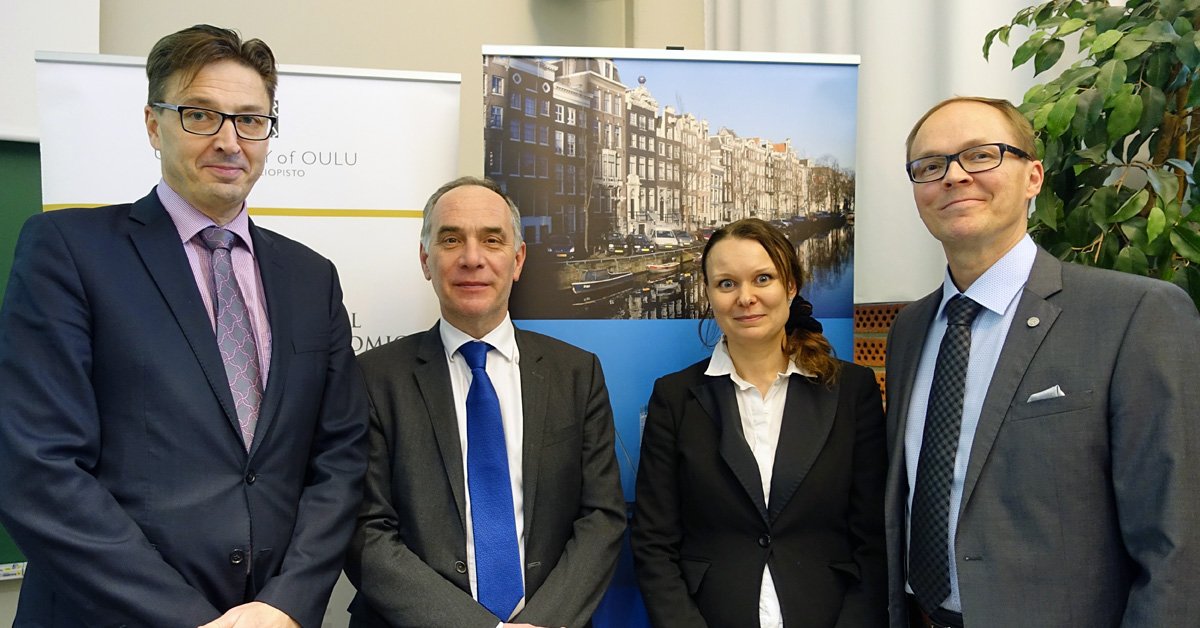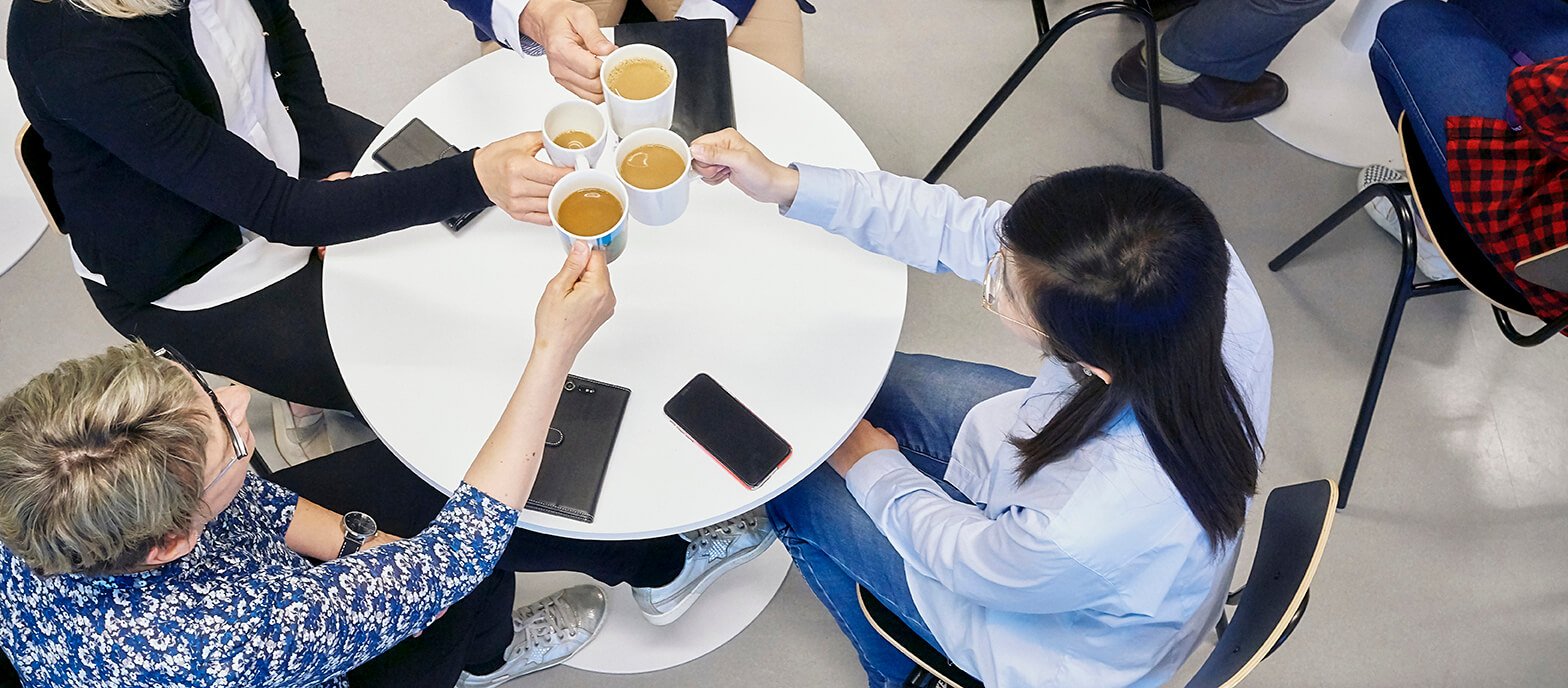
H.E. Cees Bansema and Minna Pikkarainen (center) Jouko Niinimäki (left) and Sauli Sohlo (right) at the World Affairs Forum
The history, today and future of EU was discussed at the Martti Ahtisaari Institute World Affairs Forum on Wednesday the 15th February, attracting a hugely interested audience from the University of Oulu and many stakeholder organizations.
In his keynote, H.E. Cees Bansema, the Dutch Ambassador to Finland, presented the Dutch point of views to the current EU affairs. Furthermore, Professor Minna Pikkarainen presented and discussed topical issues around the health and wellbeing sector in Finland and the EU as a whole.
In his opening speech of the forum, Jouko Niinimäki, the Rector of the University of Oulu and the Honorary Consul for the Netherlands, pointed out the central role of the Netherlands in developing the EU throughout its history, from the 1950’s until today. The Netherlands is one of the founding states of the EU, having a central role in building the Union, when for example laying the foundations for the EU’s agricultural policy.
In his keynote, the Dutch Ambassador, Mr. Cees Bansema, discussed the current challenges for the EU, in light of the historical developments of the Union. The rise of nationalist-populist ideologies as well as euroscepticism present us with new challenges. But what are the real alternatives to EU? The Ambassador discussed the “Norway model”, “Swiss model”, “Canada model” as well as other approaches in relation to EU, pointing out that for a single nation, the EU provides member states great advantages in e.g. trade negotiations with global market players. Mr. Bansema also discussed the challenges of the Eurozone, the refugee crisis, and democracy deficit problematics in our societies.
Despite the challenges, the Ambassador pointed out, we must not forget the many successes of the EU. For more than half century, we have not experienced warfare, we have enjoyed huge successes in science and technology, promoted advancements in environmental issues, and for example provided excellent opportunities for our younger generation, to experience different cultures through Erasmus exchange networks.
Towards the future, Ambassador Bansema sees three possible paths. One is to take a quantum leap forward, towards a monetary union. Another option is regression – a step back – bringing back powers to member states. However, there could also be a third option, a “third way”. The EU could be “big on big issues, small on small issues”. The Ambassador concluded his presentation by discussing, that the third way might indeed be interesting for the Netherlands and hopefully other countries, to explore further.
In her presentation, Minna Pikkarainen, a joint Connected Health professor of VTT Technical Research Centre of Finland and University of Oulu, discussed the potential of connected health technologies, in shaping the future of health and wellbeing in Finland and the EU. She presented the ongoing transformation in data driven service ecosystems, and how connected health technologies could better serve the needs of the individual citizens and health professionals. Pikkarainen also pointed out some key success factors European startup companies should take into account when designing new businesses and business models for the healthcare market.
Sauli Sohlo and Marja Alatalo




